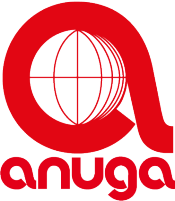F&B Insights Brazil
16 Sept 2022
Brazil goes sustainable ways in food production
According to Statista, food sales in Brazil will be around €132.70bn in 2022. According to the forecast, a market volume of €165.80bn will be reached in 2027; this corresponds to an annual sales growth of 4.55% (CAGR 2022-2027). The liberalisation of the market and international trade have led to Brazil's transformation from a food importer to an exporter. The increase in production has been accompanied by increasing sustainability and agriculture is part of the solution to combat climate change and achieve the goals of the Paris Agreement and the Global Biodiversity Framework.
Thus, the Brazilian food and beverage sector have been scaling its investments in ESG (Environmental, Social and Governance) over the last years. According to ABIA (Brazilian Food Industry Association), the amount dedicated to it has reached 0,76% of the segment’s revenue in 2020.

Sustainable food production becomes a competitive advantage, Copyrights: iStock
When it comes to ESG, the food industry has been strongly dedicated to projects that aim for a proper waste reuse and disposal for nearly a decade. Besides having faced the legislation that instituted the reverse packaging logistics, it also has quicky incorporated the concept of the circular economy.
Water, energy and rationing - market challenges
Regarding the rational usage of water resources, nine out of ten Brazilian businessmen are worried about the water crisis. This was stated in a survey carried out by de CNI (National Industry Confederation) along with 572 companies between June and July 2021. According to the data obtained, 83% of industrialists pointed to rising energy costs as their highest concern. Another 63% say that they are concerned about the risk of rationing, whereas 61% are afraid with the possibility of interruptions or instability in the power supply.
In recent years, the environmental concerns have developed new behaviours and consumption patterns. And the food industry cannot follow behind when it comes to adapting its own practices to this new reality. Stating as a forward-thinking company, aware of the sustainability issues and trends, provides a competitive advantage and lures new customers, being extremely positive for its image.
Sponsored by Anufood Brazil

